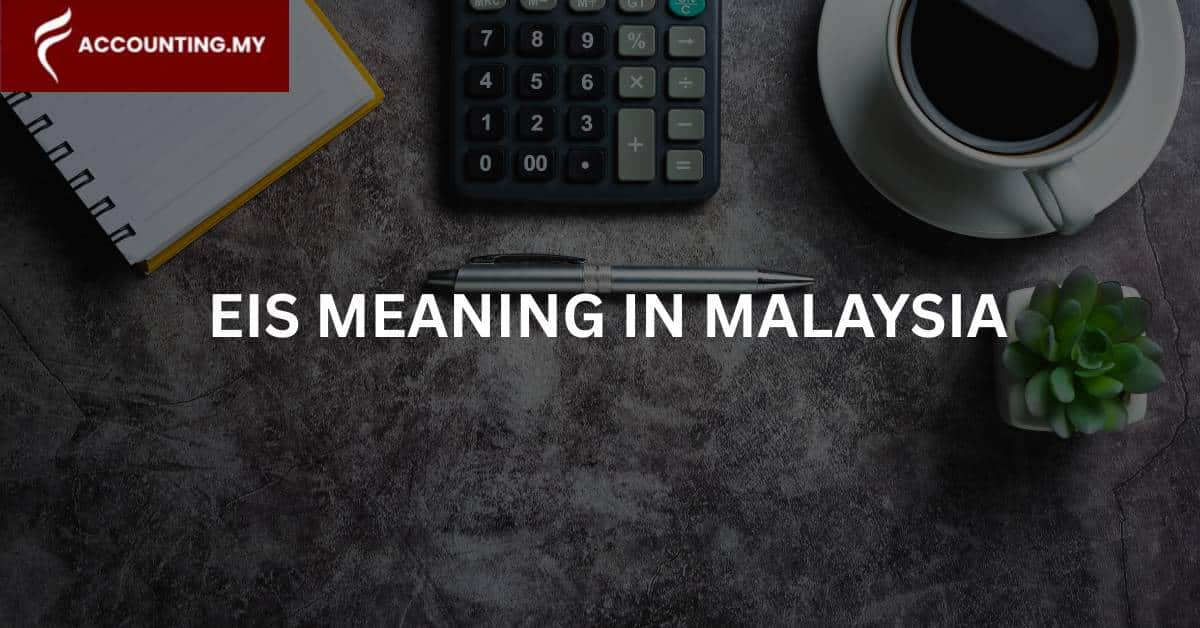Key Takeaways
- Termination of employment in Malaysia must be based on just cause such as misconduct, poor performance, redundancy, or mutual agreement.
- Minimum notice period ranges from 1 day to 4 weeks, depending on service length, or longer if stated in the contract.
- Domestic inquiries are highly recommended before dismissal for misconduct, even if not strictly required by law.
- Employees are entitled to final wages, unused leave, and statutory payments, with severance benefits in retrenchment cases.
- Dismissals without fair process can be challenged under Section 20, with possible compensation or reinstatement.
Termination of employment in Malaysia refers to the legal end of a working relationship between an employer and employee, governed by the Employment Act 1955.
You’ve likely heard the horror stories, someone dismissed without warning, another quietly let go during probation, or an employee resigning mid-project.
But behind every exit lies a process, and in Malaysia, that process comes with legal (and tax) obligations employers can’t afford to overlook.
This guide breaks down how termination works in Malaysia, including notice period rules, valid reasons for dismissal, the importance of domestic inquiries, and how to avoid wrongful termination claims.
What Is the Termination of Employment in Malaysia?
In Malaysia, termination of employment is governed by the Employment Act 1955 and supported by industrial case law. It marks the official end of an employee’s service, and can occur under various circumstances, from resignation to dismissal, retrenchment, or even mutual separation.
There are several types of termination under Malaysian labour law:
- Resignation: Voluntary exit by the employee with proper notice
- Dismissal: Termination by the employer (with or without cause)
- Retrenchment: Due to redundancy or company restructuring
- End of Contract: Fixed-term contracts concluding naturally
- Mutual Separation: Both parties agree to end the contract (VSS)
For Employers: Always issue a written termination letter and document the reason and timeline, this protects both parties in the event of future disputes.
What Are the Legal Grounds for Terminating an Employee?
In Malaysia, employers must show just cause and excuse for any termination, or risk claims of unfair dismissal.
Termination isn’t something employers can do on a whim. Under employment law, every dismissal must be grounded in a valid reason and follow the correct procedure. The Industrial Relations Act 1967 and the Employment Act 1955 both stress the need for fairness, in substance and in process.
Here are the legally recognised grounds for employee termination in Malaysia:
Misconduct (With Evidence & Domestic Inquiry)
Misconduct refers to serious breaches of discipline or unacceptable behaviour, such as theft, insubordination, harassment, or absenteeism.
- A domestic inquiry is strongly advised before dismissal
- The employee must be given a chance to respond
- Minor misconduct usually warrants a warning first
Document everything. Even Whatsapp messages can become evidence in court.
Poor Performance (After Warnings & Review)
You cannot terminate someone for underperforming without giving them a chance to improve. The law requires:
- Clear KPI expectations
- Verbal and written warnings
- Reasonable time and support to improve
- Performance reviews or appraisals as proof
Failing to document the improvement process can result in reinstatement orders or compensation.
Retrenchment (Genuine Redundancy)
Economic downturns, restructuring or automation may lead to layoffs, but even these must be fair.
- Justification must be genuine: job no longer needed
- Follow the Last In First Out (LIFO) principle unless justified otherwise
- Notify the Labour Department (Form PK) 30 days in advance
- Severance pay required under Employment (Termination and Lay-Off Benefits) Regulations 1980
Retrenchment must never be used to disguise targeted dismissals, doing so will leave employers vulnerable to lawsuits.
End of Fixed-Term Contract
When a fixed-term contract expires, the employment ends automatically, unless renewed.
- No termination notice is needed unless stated
- Renewing multiple short contracts may imply permanent status
- Clearly state the end date and project scope in the contract
Avoid contract abuse, courts will look at substance over form and more often than not, Industrial courts will side with employees over employers.
Mutual Separation (Including VSS)
Sometimes both parties agree to part ways. This could be:
- A Mutual Separation Agreement (MSA)
- A Voluntary Separation Scheme (VSS) offered by employer
In either case:
- The employee must consent freely (no coercion)
- Terms like final pay, release of claims, and tax treatment must be clear
- Documented agreement is crucial for future protection
Best used when roles are redundant but relationships remain cordial.
For Employers: When to Use Each Termination Type
Termination Type | Use When… | Must Do |
Misconduct | Employee breaks rules or policy | Conduct inquiry, document proof |
Poor Performance | Consistent underperformance | Issue warnings, track improvement |
Retrenchment | Role is redundant | Follow LIFO, notify Labour Dept, pay severance |
Fixed-Term End | Contract reaches end date | Ensure clear terms, avoid repeat renewals |
Mutual Separation | Both parties agree to exit | Sign agreement, ensure no coercion |
Read more: Compassionate Leave in Malaysia: What Employers Should Know
How Much Notice Is Required for Termination in Malaysia?
The required notice period depends on the employee’s length of service or what’s stated in the employment contract, whichever is longer.
Under Section 12 of the Employment Act 1955, notice must be given before termination unless the dismissal is due to serious misconduct. The law outlines statutory minimum notice periods, but employers and employees are free to agree on longer durations through contracts.
If no contract exists or if the contract specifies less than the legal minimum, the Employment Act applies by default.
Key Points to Remember:
- 1 day to 4 weeks is the legal minimum based on length of service
- Contracts can override and offer longer notice, but never shorter
- Termination can be immediate if both parties agree to payment in lieu of notice
- Probationers are also entitled to notice, based on their contract or the law
- Notice must be in writing, stating the effective date and reason (optional but recommended)
“Payment in lieu” means paying a salary equivalent to the notice period instead of requiring the employee to serve it.
Minimum Notice Periods in Malaysia
Length of Service | Minimum Notice Required |
Less than 2 weeks | 1 day |
2 weeks to less than 5 years | 1 week |
| 5 years or more | 4 weeks |
Contractual (if stated) | As per contract (must be ≥ law) |
| In lieu of notice (by employer) | Salary equivalent to notice period |
Example of How to Handle a Notice
A confirmed employee at a marketing firm has been with the company for 3 years. The employment contract states a 1-month notice period.
- Legal minimum: 1 week
- Contractual term: 1 month (valid, since it exceeds minimum)
- When the employer decides to terminate the employee due to restructuring, they choose not to serve notice and instead pay 1 month’s salary in lieu.
This is fully compliant, as long as it’s documented clearly and payment is prompt.
Always get a signed acknowledgment of payment in lieu to avoid future disputes.
Do Employers Need to Conduct a Domestic Inquiry Before Dismissal?
If you’re dismissing someone for misconduct, a domestic inquiry is highly recommended to ensure procedural fairness and legal protection.
While not mandatory under the Employment Act 1955, Malaysian courts have consistently held that dismissals without a fair inquiry may be ruled as wrongful termination, especially when misconduct is cited as the reason.
Why a Domestic Inquiry Matters (Even If Not Mandatory)
- Shows the employer followed the proper procedures
- Allows the employee to explain or defend themselves
- Creates a clear paper trail to justify dismissal
- Often used as key evidence in Industrial Court cases
Without it, the burden of proof falls entirely on the employer if challenged.
When Should You Conduct a Domestic Inquiry?
Situation | Is Inquiry Recommended? |
Absenteeism / chronic lateness | Yes |
Theft, fraud, or harassment | Yes |
Poor performance | No (follow appraisal process) |
Retrenchment or redundancy | No (based on business grounds) |
Probationer misconduct | Yes (shortened process is acceptable) |
Read more: Maternity Leave in Malaysia: Rights, Benefits & Employer Duties
Key Steps in a Proper Domestic Inquiry
- Issue a Show Cause Letter
- Detail the alleged misconduct
- Give 3–7 days to respond in writing
- Form an Inquiry Panel
- Must be neutral and not the direct manager
- Minimum of 2–3 people is ideal
- Hold the Hearing
- Employee can bring a representative
- Present evidence, allow cross-questioning
- Deliberate & Decide
- Panel concludes if the misconduct is proven
- Decision documented with reasons
- Issue Termination Letter (if proven)
- State reason, reference findings
- Include notice period or payment in lieu
Keep minutes, signed records, and all correspondence, all of this documentation would come in handy in the event of a dispute.
What Are Employee Rights Upon Termination?
Employees are entitled to notice, final payments, benefits, and the right to challenge a dismissal they believe is unfair or unlawful.
Under the Employment Act 1955 and Industrial Relations Act 1967, Malaysian employees are protected against arbitrary termination.
These rights apply to most working individuals in Malaysia, including non-citizens, contract staff, and even those earning above RM4,000/month (with some conditions).
Right to Final Salary and Outstanding Benefits
Employees must receive:
- Final month’s salary up to the last working day
- Payment for unused annual leave (in cash)
- Pending overtime or commissions (if contractually owed)
- Statutory contributions (EPF, SOCSO, EIS) must be submitted by the employer
“Employers must pay within 7 days from the final working date, or risk legal action under the Employment Act.”
Right to Proper Documentation
- Written termination letter stating reason and last day
- Payslip or salary breakdown for final payment
- EA Form for tax filing (if termination occurs within the year)
- Notice of termination or payment in lieu,must be provided unless its summary dismissal for proven misconduct
Right to Challenge the Dismissal
If the employee believes the termination was:
- Unjustified (no valid reason)
- Procedurally unfair (no domestic inquiry, no warnings)
They can file a claim under Section 20 of the Industrial Relations Act 1967.
Industrial Court may award:
- Reinstatement (return to the job)
- Compensation (up to 24 months’ salary)
- Back wages from the time of dismissal
However, the complaint must be lodged within 60 days from the date of termination.
Step-by-Step Termination Process for Employers
A structured and well-written termination process protects your company from disputes and helps with compliance when it comes to Malaysian labour laws.
Whether you’re terminating for misconduct, performance issues, or redundancy, you must follow a clear and fair procedure.
Step 1: Review the Contract and Legal Grounds
- Check the employment contract for terms related to notice, dismissal, or probation
- Always make sure the reason for termination is valid under the Employment Act or Industrial Relations Act
- Common valid reasons: misconduct, poor performance, redundancy, or contract expiry
Step 2: Communicate Issues (If Applicable)
- For poor performance: issue verbal and written warnings
- For misconduct: send a show cause letter asking for an explanation
- For redundancy: prepare business justification (restructuring)
Skip this step only for serious misconduct requiring immediate action.
Step 3: Conduct a Domestic Inquiry (If Misconduct Is Involved)
- Set up a neutral panel
- Allow the employee to be heard and present evidence
- Document findings clearly
Step 4: Calculate Final Payment and Prepare Documentation
Include:
- Unpaid salary
- Unused annual leave (cash value)
- Commissions, bonuses, or claims (if owed)
- EPF/SOCSO/EIS contributions
- Prepare documents: final payslip, EA Form, HRDF updates (if applicable)
Step 5: Issue the Formal Termination Letter
Include:
- Reason for termination
- Effective last day
- Notice period or payment in lieu
Ensure it’s signed and acknowledged by both parties
Step 6: Maintain Records for Compliance & Audit
Keep copies of:
- Warning letters
- Domestic inquiry notes
- Termination letter
- Payment proof and payroll records
- Employee acknowledgment of final payout
Keep for at least 7 years for audit and Industrial Court defence.
Crafting a Fair Termination Policy: Your Next Steps
Termination of employment isn’t just a policy, it’s a legal obligation.
Whether it’s for misconduct, poor performance, or company restructuring, following the right process protects both your business and your team.
At Accounting.my, we help Malaysian businesses implement compliant, people-first termination procedures. If you’re unsure about notice periods, domestic inquiries, or final payouts, we’re here to help you get it right.
Need help reviewing your HR or payroll compliance? Let’s talk.
Frequently Asked Questions About Termination of Employment Malaysia
Minimum is 1 day to 4 weeks based on service length, unless otherwise stated in contract.
Yes. Probationers are entitled to notice and fair treatment like confirmed staff.
Only in cases of serious misconduct and after domestic inquiry.
Dismissal without valid reason or fair procedure, e.g. no inquiry or discrimination.
Not always, but statutory severance is required for retrenchment under certain conditions.
Employees can lodge a complaint under Section 20 of the Industrial Relations Act.















